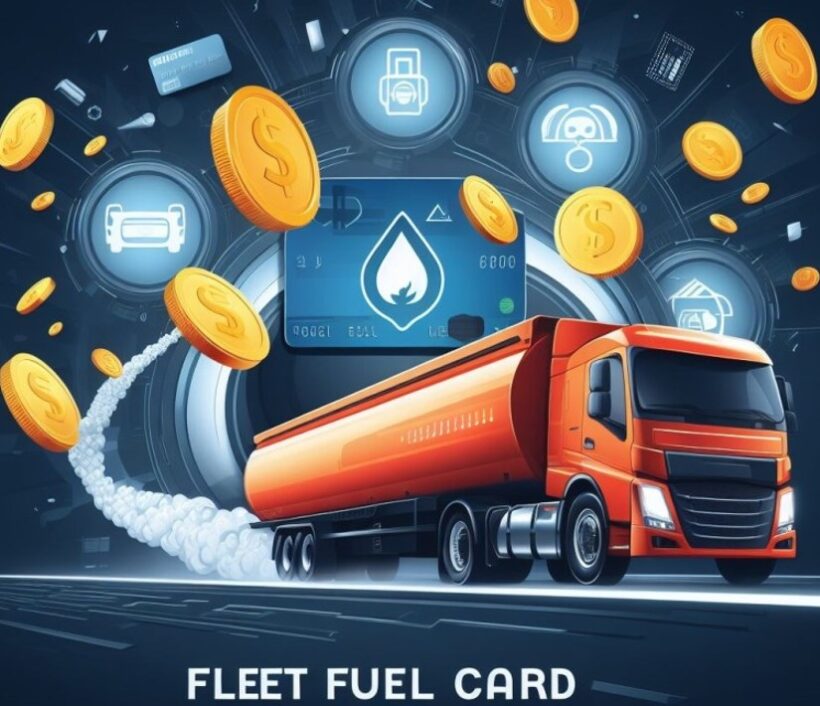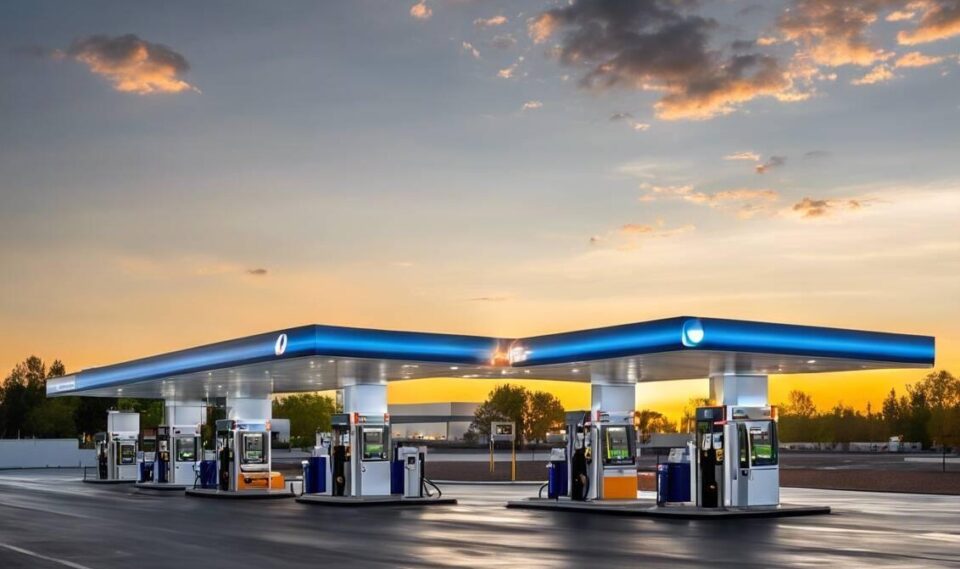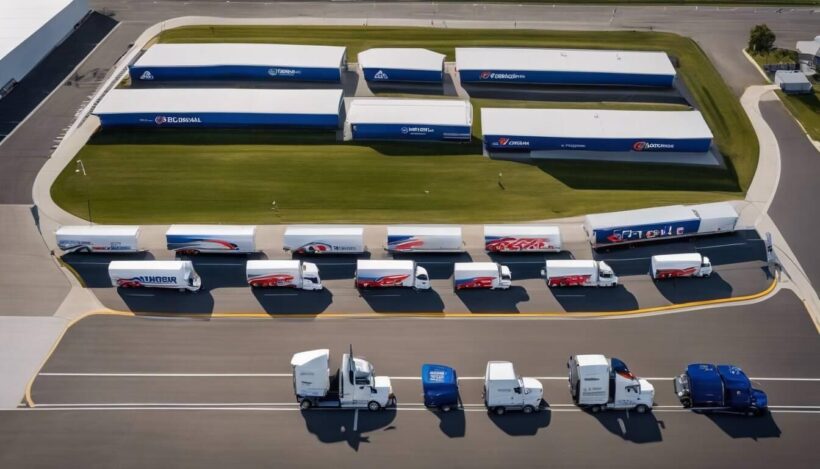Fleet fuel cards offer increased security, customizable purchase limits, and automated expense tracking and reporting compared to traditional payment methods like credit cards or cash. Additionally, they provide access to discounts on fuel and other business expenses, helping businesses save money while efficiently managing their fleet’s fueling needs.
Maximize Savings with Fleet Fuel Cards
When it comes to managing fuel expenses for a fleet of vehicles, every cent saved on fuel directly impacts the bottom line. Fleet fuel cards like those offered by WEX can be a game-changer, providing substantial potential for cost savings through rebates and discounts at participating fuel stations, particularly beneficial for businesses with numerous vehicles.
WEX fuel cards provide up to 3¢ per gallon in rebates on fuel, based on the number of gallons purchased at participating locations each month. To put this into perspective, with the average U.S. gas price, a 3¢ per gallon rebate equates to approximately $60 in savings for every 2,000 gallons of fuel purchased. For businesses with larger fleets, these savings can multiply significantly over time.
Moreover, these savings don’t just impact the monthly bottom line but also play a crucial role in optimizing operational costs over time while maintaining efficiency throughout business operations.
For example, consider a small business with 10 vehicles and an average monthly fuel consumption rate of 2,500 gallons. With a 3¢ per gallon rebate, this business could potentially save $75 every month on fuel expenses alone. In a year, that translates to $900 in savings – a significant amount for a small business.
The ability to cut down on fuel expenses is vital for businesses of all sizes. The potential for savings through WEX fleet fuel cards is not just an opportunity but an essential tool for any company looking to optimize their operational costs while keeping their vehicles running efficiently and reliably.
As pivotal as cost-savings are in fleet management, equally vital is the capacity to track and report on fuel usage effectively. Now, let’s explore how efficient tracking and reporting can benefit businesses with fleet operations.
Efficient Tracking and Reporting for Businesses
One significant advantage of fleet fuel cards is the ability to provide businesses with a robust platform for comprehensive tracking and reporting of fuel usage. This feature goes beyond mere convenience; it becomes a strategic tool that allows businesses to gain valuable insights into their fuel expenditures and consumption patterns. Real-time reporting mechanisms enable business owners to stay on top of their fuel expenses and trace any irregularities in usage, leading to a better understanding of where the money is going.
What this means is that, rather than manually tracking each fuel transaction, which can be arduous and error-prone, businesses can rely on fleet fuel cards to automate this process. It simplifies the often complex accounting procedures associated with managing multiple vehicles and their fuel expenses, providing detailed information about each transaction, including the time, location, and quantity of fuel purchased, taking the guesswork out of fuel management.
Furthermore, this level of comprehensive and real-time reporting doesn’t just streamline internal operations; it also enhances transparency within the organization. Employees become more cognizant of their fuel usage patterns when they know that each transaction is being meticulously recorded. This not only encourages accountability but also prompts individuals to be more mindful of their consumption habits, ultimately contributing to a more efficient use of resources.
The integrated capabilities of these systems with existing bookkeeping software or accounting platforms further improve operational efficiencies. Instead of collating data from disparate sources manually, businesses can seamlessly integrate the information from their fleet fuel cards with financial software for a more holistic view of their operations. This integration facilitates a comprehensive analysis of fuel expenses in relation to other operational costs, empowering decision-makers with deep insights into the impact of fluctuating fuel prices on profit margins.
By leveraging real-time reporting mechanisms, businesses can gain insights into fuel expenditures, track usage patterns, and generate custom reports.
Ultimately, efficient tracking and reporting afforded by fleet fuel cards simplifies administrative tasks and empowers businesses with detailed insights that drive informed decision-making, enhancing transparency and enabling proactive cost-saving measures. Leveraging these platforms provides a competitive advantage in navigating the complexities of fuel management.
In this high-stakes game of controlling costs and enhancing efficiency within business operations, let’s now pivot to examine how fleet fuel cards assist in “Improved Cost Management through Fleet Cards.
Improved Cost Management through Fleet Cards
One of the most significant advantages of using fleet fuel cards is exercising better control over operational costs. For any business, cost management is crucial for financial stability. Fleet cards provide an added layer of security and oversight compared to traditional payment methods like cash or credit cards. By using fleet fuel cards, businesses can set custom purchase limits for each employee, department, or vehicle, ensuring that fuel purchases remain within the predetermined budget.
Now, let’s consider why this level of control is essential. Imagine a scenario where multiple employees use personal credit cards to purchase fuel for company vehicles. Without clear visibility and control over these expenses, it becomes increasingly challenging to track and manage fuel spending effectively. However, with the use of fleet fuel cards, businesses gain the ability to monitor and regulate their fuel expenses.
For instance, think about a business operating a fleet of delivery vehicles. By issuing individual fleet cards to drivers, the company can cap the daily or weekly spending based on their specific needs. This not only prevents unauthorized spending but also ensures that fuel expenses align with the overall operational budget.
Moreover, by utilizing fleet cards with enhanced security features such as PIN protection or driver verification, businesses can significantly reduce the risks associated with unauthorized purchases and misuse of company resources.
In simple terms, think of fleet fuel cards as guardrails for your business finances, providing a secure framework within which your employees can operate while preventing them from straying into areas that could lead to overspending or misuse.
In summary, the improved cost management made possible by fleet fuel cards offers businesses a valuable tool for regulating and monitoring their operational expenses. This level of control not only helps prevent unauthorized spending but also ensures that every fuel purchase remains aligned with the predefined budget, promoting financial accountability and stability.
This illuminates just one facet of how fleet fuel card systems can transform operations. Now, we investigate how these cards are pivotal in securing transactions and mitigating potential risks.
Fleet Fuel Cards: Key to Secure Transactions
When managing a business, security is always a top priority, and that includes financial transactions. Fleet fuel cards add an extra layer of security by offering specialized controls and detailed reporting, minimizing the potential for misuse and unauthorized purchases. Unlike traditional credit or debit cards, fleet fuel cards are tailor-made for fuel-related transactions, limiting their usage to approved expenses and reducing the risk of fraudulent activity.
In addition to reducing the risk of fraud, fleet fuel cards significantly decrease the need for cash transactions, which are more susceptible to theft and unauthorized usage. By using fleet fuel cards, businesses streamline their fuel management processes and create a safer and more secure financial environment.
Specialized Reporting and Customizable Controls
Fleet fuel cards empower businesses to enforce strict spending limits, transaction restrictions, and real-time monitoring on all fuel-related expenses. This enhanced transparency provides businesses with greater oversight, helping prevent improper spending or unauthorized use of funds—a bit like having eyes everywhere at once!
By instituting these controls, you can lay a more secure foundation for financial transactions within your business while simplifying administrative efforts. This contributes to a more efficient operational model where every dollar is accounted for and every transaction is closely monitored—eliminating the uncertainties associated with traditional payment methods.
Consider this: In a hypothetical scenario where an employee attempts an unauthorized transaction using a fleet card, the system would immediately flag this unusual activity, triggering notifications for immediate investigation. This proactive security approach minimizes potential risks before they escalate into major problems—providing a level of protection that traditional payment methods simply cannot offer.
In essence, fleet fuel cards not only make transactions more convenient but also create a secure financial environment that safeguards businesses against potential threats and fraudulent activities.
Ensuring secure financial transactions is integral to the success of any business. With streamlined processes and enhanced security measures, fleet fuel cards provide the peace of mind necessary to navigate day-to-day operations with confidence in financial stability.
Operational Convenience for Drivers and Businesses

Let’s talk about how fleet fuel cards benefit not only businesses but also the drivers who are out there on the roads. For drivers, these cards can be a lifesaver. Imagine being able to fill up your tank at almost any gas station, including major brands like Shell, ExxonMobil, BP, and many more. That’s what fleet fuel cards provide – wide access to a network of fuel stations.
Consider going on a long haul across the country and needing to refuel. With a fleet fuel card, you have the freedom to pick where you stop for fuel, knowing that it will most likely be covered by your card at a wide range of gas stations. It’s about flexibility, which is crucial when you’re on the road.
And it’s not just about stopping anywhere for gas; it’s about making smarter choices too. The mobile app access provided by fleet fuel cards allows drivers to locate the best fuel prices in real-time. They can control their fuel expenses, compare prices, and plan their refueling stops strategically. Saving a little bit of money on each fill-up can add up over time, especially for long-distance travel.
Streamlined Administrative Burdens
For businesses, the benefits of fleet fuel cards go beyond just enabling drivers to refuel conveniently. It streamlines administrative burdens through providing digital fuel receipts and automated expense tracking and reporting.
Consider how many times you’ve had to deal with paper receipts that fade and get lost, especially when managing multiple drivers. With fleet fuel cards, all transactions are digital and stored electronically, making it easy to keep track of every expense without the hassle of sifting through countless paper receipts.
Furthermore, integration with bookkeeping and accounting software means that businesses can automate their expense tracking and reporting processes. This provides accurate data for analysis and ensures compliance with financial protocols – all at the click of a button.
By offering these operational conveniences for both drivers and businesses, fleet fuel cards prove to be an essential tool for optimizing efficiency and cost-saving measures in the world of business operations and logistics.
Convenience is always appreciated in business operations – from cutting down time spent on administrative tasks to allowing drivers flexibility on the road, fleet fuel cards truly bring practical ease for everyone involved.


